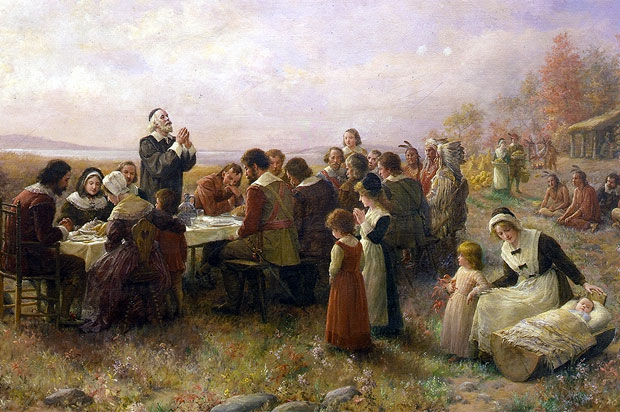“You say, ‘If I had a little more, I should be very satisfied.’ You make a mistake.
If you are not content with what you have, you would not be satisfied if it were doubled.”
Charles Haddon Spurgeon
How Do We Know Anything?
 Epistemology is the study or philosophy of knowledge. It answers the questions, “How do we know?” and, “How do we know that we know?” These questions aren’t simply about ways of teaching and learning or about accuracy in media. They’re about our deepest assumptions and presuppositions concerning life. How is knowledge even possible… knowledge of yourself, knowledge of the world, and knowledge of God?
Epistemology is the study or philosophy of knowledge. It answers the questions, “How do we know?” and, “How do we know that we know?” These questions aren’t simply about ways of teaching and learning or about accuracy in media. They’re about our deepest assumptions and presuppositions concerning life. How is knowledge even possible… knowledge of yourself, knowledge of the world, and knowledge of God?
Epistemology may seem an odd topic for Thanksgiving. And the connection between epistemology and Thanksgiving may not be immediately obvious. Some quick Internet searches suggest that the only connection between epistemology and “thanksgiving” can be summed up in a question, one mostly asked by skeptics: How do we know there’s a God to whom we ought to be thankful?
Great question. Onward.
Romans 1
First and foremost, Scripture insists that human knowledge rests completely upon God’s self-revelation. God reveals Himself in creation generally, and then more specifically, in man’s nature. Man is the very image of God. Which means that we can know things with certainty. That is, we are morally obligated to receive God’s self-revelation and to understand the whole universe in terms of it. The problem is that we’re sinners. And in our natural state … we’re not on good terms with God and for the most part we hate anything that even points to God … which means that we also hate real knowledge.
Paul describes this “biblical epistemology” in the first chapter of Romans. There he argues for the clarity of a general revelation. Man, he says, is confronted with the knowledge of God, the true God, indelibly stamped in his own nature and written in a big, big way across the scope of all creation (v. 19). It’s always been that way, Paul says. God’s divine nature and sovereignty have been manifest in the things He has made from the beginning of creation (v. 20). But men willfully and culpably suppress this knowledge in unbelief (v. 18-20). So in one sense all humanity knows God, although apart from the grace of God … we suppress this knowledge. Paul goes further and speaks of a time in history “when they knew God” but willfully rejected that knowledge out of ingratitude. Now we’re getting somewhere.
There were, in fact, two times in human history when all living humanity acknowledged the reality of the Creator God and the validity of His claims on mankind. In Eden after the Fall, and on Ararat after the Flood (Gen. 3; 9). Folks heard the promise of God and gave thanks for His mercy. But that thankfulness was pretty much short-lived.
In each case, within a few generations, men became outright annoyed with God. Yep, they knew God, but refused to give Him glory (v. 21). They even grumbled about His laws and His providence. They complained about His nature. They wanted Him to be more like them. Paul describes this by simply saying that … they weren’t thankful.
So, since they didn’t like how God did things, they reinvented Him. They imagined that God was like man … or like the birds of heaven, or the beasts of the earth, or the snakes and beetles that crawl in the dust (v. 23). And they gave form to their imaginations and manufactured idols. They worshiped the works of their own hands … manifestations of their own creative and reproductive energies.
Bottom line: They worshiped sex and power. And God then seemed to let them have what they wanted most: their own way.
 Paul then says that God in judgment gave them over to “reprobate” minds, minds void of judgment (v. 28). And if they wouldn’t make the logical distinction between God and beasts and bugs, He would abandon them to the full range of such craziness. Paul describes in some detail the ethical degradation that came from this type of idolatry, but he begins with man’s intellectual inability to discern the true nature and proper use of human sexuality.
Paul then says that God in judgment gave them over to “reprobate” minds, minds void of judgment (v. 28). And if they wouldn’t make the logical distinction between God and beasts and bugs, He would abandon them to the full range of such craziness. Paul describes in some detail the ethical degradation that came from this type of idolatry, but he begins with man’s intellectual inability to discern the true nature and proper use of human sexuality.
It’s not surprising, then, that men who put the transcendent God in the same category with a piece of wood or a rock eventually found that they could no longer think in clear sexual categories. Ingratitude has both ethical and epistemological consequences.
God, Knowledge And Community
God’s self-revelation is tied to His total self-knowledge. God fully understands, fully loves, and fully delights in His creation. He is absolute love, goodness, and joy. As eternal “Trinity-in-Unity,” the Father loves and delights in His Son (Matt. 17:5), the Son rejoices in His Father (Prov. 8:30-31), and the Holy Spirit proceeds from the Father to the Son and from the Son to the Father as the living, divine bond of their love and delight (John 15:26; 16:7-15). God, then … is overflowing joy and delight.
As far as we’re concerned, God is the Author of every good and perfect gift (Jas. 1:17). There is nothing we can give Him that He has not first given us. And yet in His absolute self-sufficiency, He calls us to find our joy in Him (Ps. 43:4). He calls us to be thankful and to enjoy that thankfulness in Him.
 But since the Fall, this is only possible when we come to Him through faith in Christ crucified and risen (Rom. 15:13). Only those whose sins are forgiven have real cause to be thankful and rejoice in God. Only those who have been born again by God’s Spirit can lift grateful hearts and voices to God in true thanksgiving. The fear of the LORD is the beginning of knowledge and the starting point of true joy and thanksgiving.
But since the Fall, this is only possible when we come to Him through faith in Christ crucified and risen (Rom. 15:13). Only those whose sins are forgiven have real cause to be thankful and rejoice in God. Only those who have been born again by God’s Spirit can lift grateful hearts and voices to God in true thanksgiving. The fear of the LORD is the beginning of knowledge and the starting point of true joy and thanksgiving.
Summary
Ingratitude leads humanity to idolatry. Thankless humanity then reinvents God to free themselves from His laws and ordinances. But when they reject and replace the true God, they also reject the very basis of value and meaning. They reject the living Truth and find their world devoid of any absolute. For these folks … all things are relative. Truth is meaningless. Ethics are fleeting. Claims to knowledge are merely power plays to control, enslave, and abuse.
Thankfulness, on the other hand, is really just submission to reality. It’s not only a recognition that God exists but also a joyful understanding of who God is and what He’s done in time and space. Thankfulness, then, is the natural response of true faith to the goodness and grace of God in creation and redemption. So the human heart that’s truly thankful to God rejoices in all God’s works because it knows the world we live in for what it is … the creation of a loving and sovereign God who reveals Himself in plain sight.
Thanksgiving, then, becomes a great time not just to celebrate physical blessings. Despite liberal claims to the contrary, most Americans have plenty of these. But Thanksgiving is also a time to give thanks to God for the foundation of knowledge itself. What an amazing blessing.
Happy Thanksgiving!

2 Comments
Be happy in Giving Thanks every day and not only once a year!
Wow! I think Bill hit the nail on the head with this article. I have never heard this truth to be so articulately spoken.
Add Comment